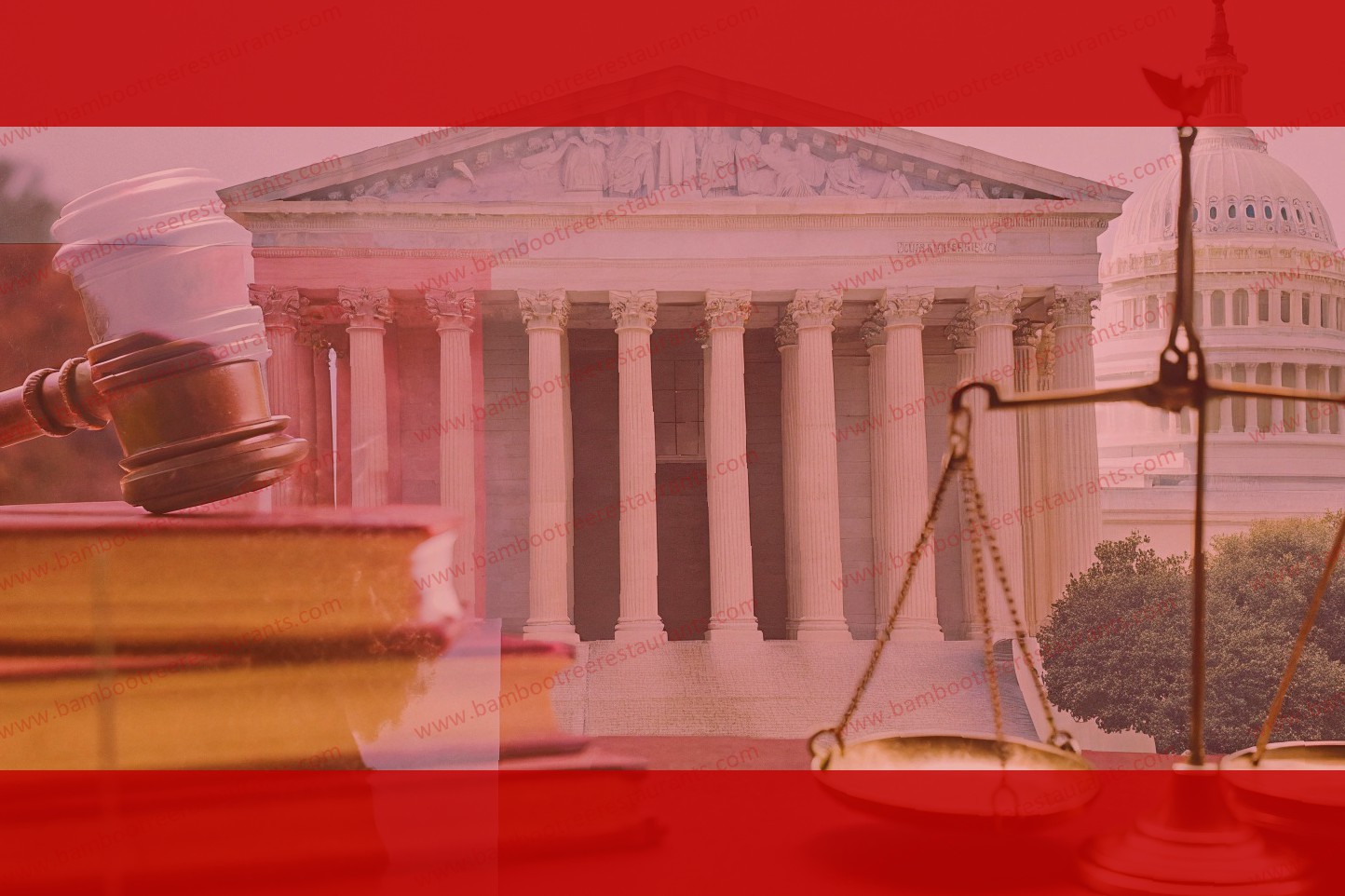What is DC Probate?
What is probate?
At its core, probate is the process by which the estate of a deceased person is administered. It encompasses everything from the gathering of the decedent’s assets, whether in cash or kind, to the payment of any outstanding debts and taxes, to the distribution of what remains to the rightful beneficiaries according to the terms and conditions of the decedent’s will or the laws of the District of Columbia as applicable . While the probate system in Washington, D.C. may be similar to the probate system in other jurisdictions, there are unique aspects specific to the District that should be considered.
Overview of the DC Probate Court and its Jurisdiction
Every court in Washington DC has a constitutionally created structure that is slightly different than those in the states. This produces unique results. In the district, there is a trial court known as the Superior Court. The Superior Court is divided into various divisions including Family Court, the Civil Division, and the Probate Division. All told, there are 12 divisions within the Superior Court. Unlike other courts in other states, the DC Probate Division is not a court of equity. It is governed by the D.C. Rules of Civil Procedure. All proceedings filed in the Probate Division go through the regular court system and there are no additional steps or special rules. While it operates under a civil umbrella, the Probate Division is unique because it has jurisdiction over all "probate" matters. Anything related to the decedent’s estate requires a probate filing. The Probate Division is unique. As described by the District of Columbia’s Official Code: The Surrogate’s Court is not a court of equity, but one of probate; and the forms of proceedings used therein are those incident to regular civil actions, and controlled by the rules applicable thereto. For this reason, the court system in DC provides for a flow of information that is slightly different than other courts. It operates under the presumption that most petitions can be litigated under the District of Columbia’s Civil Rules. The only time special rules come into play are when an individual falls under the jurisdiction of the Small Estates Rule or the Ancillary Proceeding Rule. For more information on these subdivisions, see Section 2 of this guide. The DC Probate Division also has a unique structure. All matters filed in the Probate Division are overseen by an associate probate magistrate. The magistrate has both judicial and executive powers. These judges have full authority and discretion over their cases. Generally speaking, all trials within the District’s Probate Division will have a magistrate presiding over them. The D.C. Superior Court is presided over by limited judges, associate judges, and magistrate judges. "Limited" judges are those who serve by commission. Associate judges are appointed by the president of the United States, and magistrates are appointed by the chief justice of the DC Court of Appeals. While the rules of evidence apply to all courts, the main benefit that probate litigants enjoy are the right to a jury trial. This is different than other states, where a right to a jury trial is typically non-existent. In Washington D.C., people are able to choose whether they want a jury or non-jury trial. Still, the actual process for carrying out probate functions flows the same no matter who is presiding.
How to Open a DC Probate Case
If you are the personal representative and you want to file a case in D.C., you will need the following forms:
_ Motion for Substitution of Personal Representative
_ Bond
_ Acceptance of Appointment
_ Acknowledgment and Acceptance of Appointment of Personal Representative
_ Death Certificate or Affidavit of Death with attached Death Certificate
_ Application for Probate of Will and/or Letters Testmentary
_ Order Appointing Personal Representative, Approving Administration Bond and Granting Letters
_ Proof of Publication
_ Renunciation or Nomination of Examiner
_ Inventory and Appraisal
_ Affidavit of Notice of Qualification
These forms will be completed by the personal representative and filed in the D.C. Superior Court, Register of Wills Division. Upon acceptance of all the required forms, the Register of Wills will approve the inventory, and issue a Statement of Appointment of Personal Representative (Testamentary).
Running the DC Probate Process from Start to Finish
The probate process in Washington, DC is governed by the District of Columbia’s law of wills, trusts, and estates. In most cases, this process consists of a petition for appointment of a personal representative, an orders appointing that person, three or four notices to interested persons, an inventory of estate assets, an appraisal of those assets (in some cases), a creditors’ claims process, several accountings that often require a court hearing, and final distributions (and sometimes litigation if there are disputes). Although the process begins with the Surrogate’s Court and the Register of Wills, the eventual end of the process is managed through the D.C. Superior Court. The petitioner will prepare the petition and file it with the Register of Wills. If the decedent had a will, attach it to the petition. The Register of Wills accepts the papers, gives the petitioner a filing date-stamped copy of the petition, and assigns the case a docket number. Then the petitioner must arrange the mailing and publication of notice of the estate, the proposed appointment of the petitioner, and the petition itself. The notice period must be a minimum of 15 days, which starts when the last notice of the three has been published in a newspaper of general circulation. The initial hearings may occur any time after the conclusion of this 15-day period. During this notice period, a decedent’s "heirs" can appear in the proceeding and request to be appointed in place of the nominated person. Also, a person holding a later, formally executed will can file a petition along with the later will and request the court to appoint him or her as executor of the decedent’s estate. If there is no objection, an order appointing the personal representative may be obtained within a week after the expiration of the notice period. Such an order is not an order of appointment but only an order appointing the petitioner as a personal representative. After appointment, a personal representative must make an inventory of the assets of the estate and appraise the assets. The Inventory must list assets and their values as of the date of death. This value is usually the fair market value. Return of inventory must be filed with the Register of Wills. After inventory, the personal representative must give notice to creditors of the estate in a form provided by the Register of Wills. All creditors of the estate have six months to present their claim for payment to the personal representative. The personal representative considers the claim(s) and must either accept the claim and pay it, or decline to pay the claim and treat it as a proceeding against the estate. The actions of the personal representative concerning the claims filed may have to be approved listening to other interested persons. These interested persons have three months from the receipt of the notice of the personal representative’s decision to bring a court proceeding to determine whether the claim is properly payable from the estate.
Responsibilities of Executors under DC Probate Law
The executor, formally called the personal representative (PR), is the person who is responsible for managing a probate case in D.C. The executor is also the fiduciary who handles the administration of an estate, representing the best interests of creditors and beneficiaries. Sometimes, attorneys serve as executors for probate cases. However, family members or close friends of the decedent frequently perform the role of the executor instead of lawyers.
When someone passes away without a will, probate is necessary to appoint an executor to manage their assets. However, even when a will exists, it is often necessary to go through probate to have the will validated and the persons named by the decedent appointed as PRs.
D.C. probate rules require PRs to put the interests of all parties first. Executors can face personal liability if they fail to meet their duties under the probate rules and the D.C. probate code. Executors have specific categories of tasks, and rules govern what must be done at each stage of the probate process . Executors must:
D.C. probate rules prohibit the executor from taking any actions that are not relevant to the administration of the probate estate. For instance, executors are prohibited from engaging in any transactions regardless of whether they are in the best interests of a beneficiary or creditor if the transaction is not relevant to the estate probate administration. Executors and PRs cannot act on their own behalf, but rather must always act on behalf of the decedent.
Executors have a responsibility to the decedent and the beneficiaries of the estate to handle the estate with care and diligence. If they fail to do so, they may be subject to rules and sanctions imposed by the probate court if any issues arise with the probate estate. Executors are also responsible for ensuring the invalidity of any wills that were not self proved before the decedent died. Executors need to contact qualified probate attorneys to assist with the administration of the probate estate as early in the process as possible and seek help wherever necessary.
Common Issues in DC Probate Matters
While identifying challenges in an estate’s administration is difficult, doing so takes on special importance when the personal representative is engaged in a power struggle with a challenging heir. The latter is frequently the situation with contested matters. Examples include claims of undue influence, elder abuse/neglect or diminished capacity, and family disputes over how property should be distributed – especially when it involves the second marriage of one or both of the decedents’ children. Finally, the personal representative who does not follow the probate court’s procedure rules is also vulnerable to a challenge.
In D.C., not only can specific disputes arise but issues also can occur in large estate administrations. A high net worth estate brings on the concern that a decedent may not have properly accounted for their assets during life. Residuary heirs ask, "How do I know that property was not improperly taken from the estate?" They start digging into the decedent’s affairs, looking at bank statements, credit card accounts, and phone records. They will begin interrogating the personal representative to find out if there was anything wrong. As the situation evolves, it becomes more uncomfortable as the questioning becomes a bit more sinister and pervasive. All information becomes open for discovery in this kind of battle. The information gathering then takes a turn—a deposition is a formal way to question someone while under oath. Either party can ask for that, and if they do, you need to have a lawyer like our DC Probate Lawyers to help you prepare and represent you.
Probate in DC: How to Avoid It
Traditionally probate was the only way to make sure that an estate was run correctly after a loved one’s death, but now there are alternatives to transferring assets. There are several commonly used methods of avoiding probate.
Living Trusts
It is a generally accepted fact that people want to control their property while they are alive, and then distribute those assets upon death. A living trust is often a good solution because it allows individuals and families to retain control of their assets during their lives, and then transfer the property upon their death. The benefit of a revocable trust is that the grantors (person who creates a trust) customarily have the ability to modify or dissolve the trust at any time, and thus they and their property are under their control during their life.
California Probate Code allows the use of multiple trusts; meaning there can be multiple individual trusts, husband and wife trusts, and also trusts created by will. A major reason to create a Revocable Living Trust is that the trust itself creates the authority to manage the grantor’s affairs in the event he or she becomes incapacitated. Living Trust is often the best budget option for funds that need to go to court for Guardianship or Conservatorship proceedings. Society holds certain myths about the irrevocable trust that have a tendency to scare away a new trust maker. An example would be a concern of losing control over the assets held within a Trust. However, there are certain Trust provisions to address such control issues, which will still allow the Trust Maker access to the Trust Property or the ability to receive any benefits derived from the Trust Property. It should be noted that an Irrevocable Trust is not appropriate in every situation, and it is highly recommend that you consult an attorney to determine the best fit for your Personal Estate Plan.
Another benefit is that upon your death, the assets are not subject to Probate Court, they pass directly to the beneficiaries. It is important to understand that the use of a Trust only avoids the Probate Court proceeding; however, it does not avoid the need file the last income tax return. Upon the death of a Trust Maker the Assets of the Trust must be filed on the final 1040 Form.
Joint Owners
Another less formal way to avoid probate is by holding property jointly. A property deed where the owner transfers their property to themselves and a co-owner together as joint tenants with rights of survivorship (JTWRS), does not involve probate. The property then automatically passes to the remaining owner(s) upon the death of a joint tenant, without going through probate. The benefit of this method is that it is free to create and maintain.
This method, however, is not recommended as there are many different types of Joint Ownership options (JTWRS, tenants in common, tenants by entireties), which means each type has different implications. In addition, when property is held as joint tenants with rights of Survivorship, decisions made by one owner bind the other owners. As a result, the remaining property owner could lose their inheritance if the initial owner adds someone else as a joint owner.
While there are other alternatives to avoid probate, first step is to review your estate plan and determine what is best for you under the circumstances.
Online Help with Legal Basics, Forms, and Clerks
It is often smart to get help from a lawyer experienced in DC probate. A probate lawyer can advise the executor or personal representative about what to do to fulfill any legal duties involved in the estate administration. Though a court does not normally supervise an estate, it may appoint a lawyer as counsel for the estate. Often this occurs when the executor needs help managing litigation or administration that has become complicated.
Typically a lawyer will file a notice of appearance with the clerk of the D.C. Probate Division. The lawyer may go to court hearings, manage the assets, and help identify which creditors to inform of the decedent’s death. The lawyer may also ask the court to approve any actions that involve spending or distributing money. A probate lawyer in Washington, D.C. usually helps the client terminate the estate after distributing all the money and property .
An estate planning lawyer who practices primarily in the District should be familiar with the local DC probate rules (and the local probate forms). Referrals are often available from local and national lawyer referral services, as well as bar associations.
D.C. Legal Aid provides a number of resources for residents of Washington, D.C. It operates the D.C. Bar Pro Bono Center, which provides free legal assistance to low-income D.C. residents with civil matters, including estate issues.
The Pro Bono Center has a self-help center that offers help on D.C. probate matters at Morrison & Foerster’s office in downtown Washington. Most cases take place there. No appointment is necessary, and staff may be able to connect you with a pro bono attorney who specializes in the area of law where you need help.




+ There are no comments
Add yours